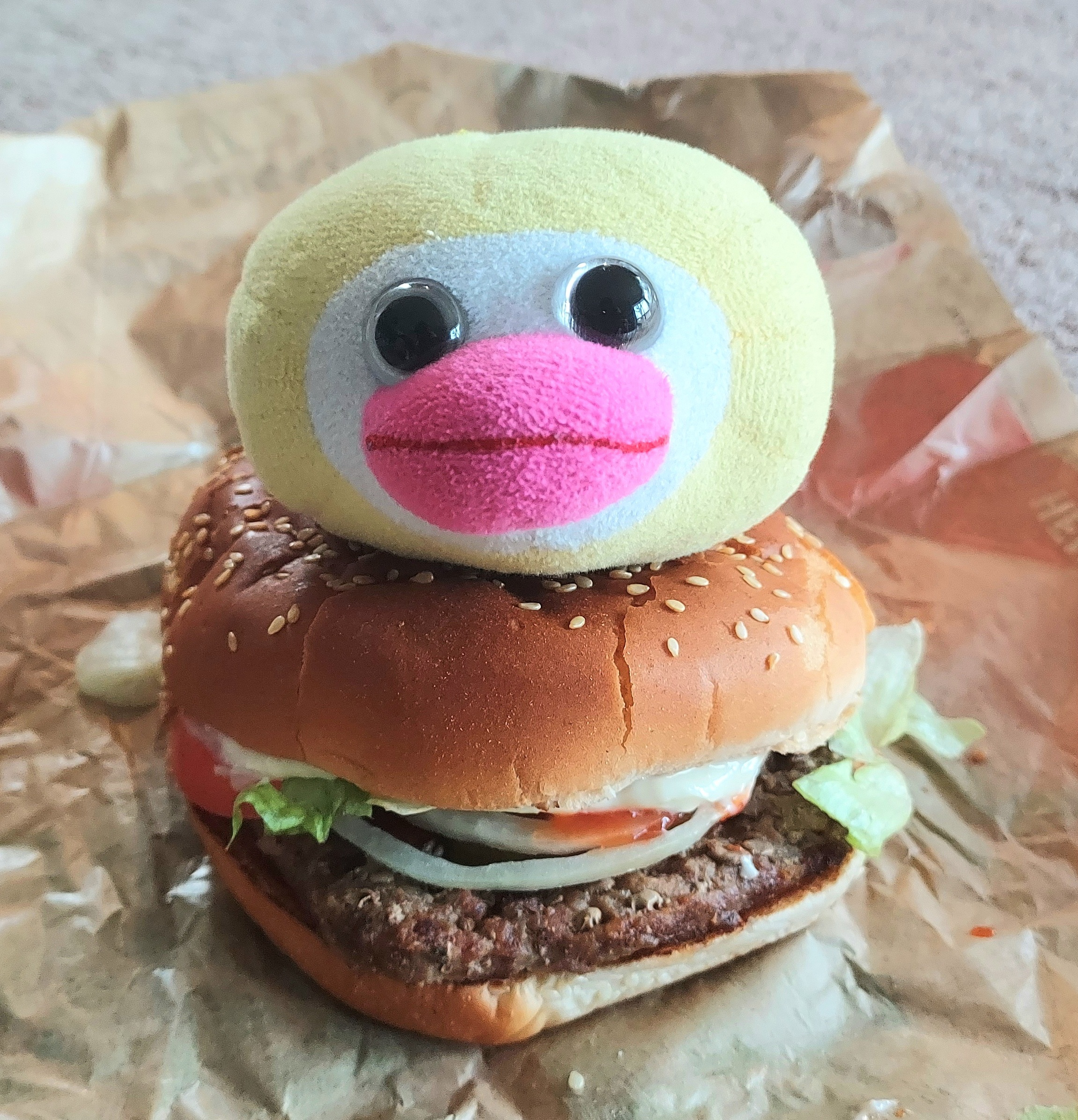Oh neat, now I know Penis Worms have purple blood. And that Penis Worms exist.
My exact thoughts. Penis worm? Time to look up how to actively avoid getting any penis worms.
Chill, they’re called that because they kinda look like penises, they’re not penis parasites. https://en.wikipedia.org/wiki/Priapulida?wprov=sfla1
Well now I’m concerned about the picture of my penis in the wiki article…
You’re right. It’s the Sounding Worm that is the penis parasite, not Penis Worm. Sounding Worms are aptly named because they get inside the urethra and live there, and can even cause orgasm when excited.
Must not look this up… Must not look this up. Must not…
If that’s how their dicks looked like, they need to see a doctor.
They’re easy to spot if you have them.
They’ll appear as thin squiggly lines running underneath your skin, usually a different pigment than your natural skin tone.
Don’t dip your oar in Lake Katchakootie
It’s the existence I really have a problem with.
came for the outrage, then came for the outrage
Ahahaha benis :DDD
Knew about Haemoglobin and Haemocyanin, but never heard of the other two before. Very interesting.
Also, RIP Penis worms. Got a terrible name and have low efficiency oxygen transport.
Interesting tidbit: from left to right, these are ordered by the efficiency of the oxygen transportation, highest to lowest.
Blue blood may be cool, but red blood is better for you.
Blue blood may be cool, but red blood is better for you.
=> Nobility is fashionable, but it’s healthier to be a peasant.
Also, from this table I learn that Europeans of ages past were ruled by octopodes.
I guess I could google it but for the sake of the comment section is that from highest to lowest or the other way around?
Highest to lowest. I edited it into the comment.
I remember one of my sister’s teachers were saying that human blood is blue when inside your body. “Just look at your veins!”
Yeah one of the great lies we were all taught.
This is yet another trick to make us look at penis worms :P
Well “hey baby wanna look at something purple and full of blood” hasn’t worked for me yet
This is clearly propaganda by Big Penis.
Or at least by Big Penis Worm
Chlorocruorin is really confusingly named. I was trying and failing to find the chlorine in it and was wondering if I was just dumb or blind or what.
khloros is Greek for “green”. That’s also where chlorine gets its name. So they’re only related etymologically.
I knew about the hemocyanin because I was trying to figure out if one of the characters in my tentacle porn should have blue blood but decided against it. Cool to learn about the others too though.
Did you go with purple?
Nah. Weirdly enough it was the character with the arthropod features I was investigating the concept for but now I wonder if I should’ve done that for the illithid so I might look into that. It was relevant to the other character because the actual arthropod features (wings) are missing by the time of the story so it was going to be one of the “hints” that they had her labeled as the wrong species but first of all it just didn’t fit creatively, it was much too overt to the extent it didn’t even make logical sense for the mixup to happen but also as you see here the science doesn’t follow either it’s only spiders and the like that have it, not dragonflies.
Whenever I see this image I always wonder 2 things:
- What makes hemoglobin more efficient?
- Why do we even need these fancy molecules to transport oxygen? Can’t we produce some kind of biological ampule that holds some pure O2 for consumption by the various processes that need it? We have dedicated organelle structures for similar tasks (i.e. mitochondria)
-
It’s sensitive to pH, so it absorbs oxygen more readily in the lungs, and releases it slightly more near tissues that need it, as they have co2 which slightly acidifies the blood in solution (h2co3).
-
It’s effective and well tuned for our biology, it doesn’t bond strongly, and is well suited for the air-blood interface, unlike others that often favor water-blood or water-the fluid worms use instead.
Thank you. Clear, easily understood explanations of questions I always wondered. 👍🏼
CO2 and H2CO3 (apparently I don’t know how to do subscript on here.
Yeah, I didn’t do the carbonic acid, then there’s the increased bicarb buffering around the pleura, couple other facts.
https://www.ncbi.nlm.nih.gov/books/NBK539815/
Upon entrance into red blood cells, carbon dioxide is quickly converted to carbonic acid by the enzyme carbonic anhydrase. Carbonic acid immediately dissociates into bicarbonate and hydrogen ions. As previously stated, an increase in hydrogen ions stabilize the hemoglobin in the T-state and induces oxygen unloading which leads to shifting of the dissociation curve to the right.[6]
Thus the acidity causes o2 release. Temperature (lungs tend to be very cold in the body) is important too.
Oxygen unloading is favored at higher temperatures which will cause a rightward shift. On the other hand, lower temperatures will cause a leftward shift in the dissociation curve. A notable example of this is exercise, where the temperature of muscle increases secondary to its utilization, thus shifting the curve to the right and allowing oxygen to be more easily unloaded from hemoglobin and deliver to tissues in need.
It’s amazing how subtly it works to gently increase efficiency where we need it. Otherwise it’s just a very weak oxygen bond (which is hard enough given oxygen is extremely non-polar and all you have are the valence pairs. edit: This lead me to wonder how the fuck it even bonded effectively
https://www.jbc.org/article/S0021-9258(19)63845-7/fulltext
Wow, I’m impressed, they’re using spin-coupling which is a pretty dicey effect.
Thus, we can conclude that the facile binding of O2 to hemo- and myoglobin arises primarily as an effect of the topology of the binding curves for the four relevant spin states. This topology, with nearly degenerat>e and parallel curves, is caused by the near degeneracy (within 10 kJ/mol) of the triplet and quintet states of deoxyheme. Therefore, the design by nature of iron porphines having close-lying spin states of a particular symmetry and energy is a means to tune binding of small ligands and overcome the activation barriers of these spin-forbidden reactions, despite the moderate SOC of first-row transition metals. The resulting barrier height makes up most of the rate enhancement due to the exponential dependence on the rate, whereas one or two orders of magnitude may come from the increase in the transmission coefficient.
That’s some fucking crazy ass engineering by nature, A weak, highly reversible bond with the molecule keyed to both pH and thermal triggers. That was a fun rabbit hole.
Thanks so much for the deep dive. I love learning from such concise facts.
To add, also @[email protected] : There is only one known species of vertebrates without hemoglobin. The Crocodile Icefish, it once had it in its blood and lost some genes to synthesize it. The debate about why is still ongoing, with the currently favored theory that they adapted to a high oxygen and low iron environment.
Thanks for the callout and link! 🙏🏽
Nature is fascinating.
-
- Penis worms?
Many of the comments being “penis worms!”, but no one is asking about that Red blood is only in the “majority of vertebrates” leaves me wondering which vertebrates have what other colour(s) of blood.
Edit: I have been told that it’s “Crocodile Icefish” (10 species of) and colourless.
Thanks, @[email protected]
Amazing that Vulcans aren’t mentioned on this list. And on a more serious note: humanoids with green blood are apparently not that impossible!
Penis worms?!?!
interesting to know there’s purple blood, though! I didn’t know that
Guys, the blood that’s coming out of my penis worm is red.
Should I be worried?Rich “blue blooded” failsons are spiders! Called it!

- obligatory Homestuck mention *
Whoever named the penis worm hit the nail on the head.
I see what you did there








